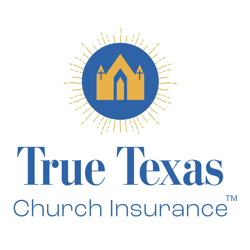Ted had a problem. Leading his church in Abilene meant taking care of his small staff—dedicated people who helped run everything from Sunday services to community outreach. But when it came to providing health insurance, the numbers just didn’t add up. Ted knew he couldn’t afford the high premiums of a traditional health plan, yet doing nothing didn’t sit right with him either. “There’s got to be a way to protect my team without draining our budget,” he thought, searching for a solution.
Many smaller Texas churches, like Ted’s, face this exact challenge. They want to offer health benefits but can’t always handle the heavy financial burden that comes with comprehensive health insurance. Thankfully, there are many solutions designed for churches working within tight budgets. One of those options is a self-funded health plan with stop-loss protection. This is a type of plan that doesn't work for everyone, but works really well for the right church.
The Challenge for Smaller Churches: Limited Budgets, Big Responsibilities
Like Ted, many smaller churches struggle to balance their financial priorities. From running community outreach programs to maintaining the building, every dollar counts. When the cost of traditional group health insurance rises, it can feel impossible to offer benefits without sacrificing other essential services.
Traditional health insurance which is typically a fully-insured plan, while comprehensive in health coverage, comes with high premiums. For smaller churches, it can seem like an all-or-nothing deal. Ted, always trying to find the middle ground, needed something that allowed him to support his team with essential coverage without pulling funds away from his church’s mission. That’s where self-insured health plans were brought to his attention.
What Are Self-Insured Plans for Churches?
A self-funded church health plan puts more control in Ted’s hands. Instead of paying a large premium to an insurance company, Ted’s church would pay a reduced amount that would be used to cover the claims that the staff were expected to incur during the plan year. The health care plan had a provision to refund premiums if the actual healthcare claims that staff members incur were below the amount of premiums paid. If the claim for benefits went past a certain limit called a stop-loss mechanism, it would convert to a fully-insured plan protecting the church from extra expenses.
In this model, the church pays for its employees' healthcare costs directly, and when claims go beyond a predetermined amount, stop-loss insurance kicks in. Stop-loss insurance protects the church from major financial risk by capping the maximum amount the church would need to spend on health claims. This way, Ted's church still has the protection of traditional health insurance for larger claims but doesn’t face the same high monthly individual health insurance premiums.

Benefits of a Self-Funded Health Plan for Smaller Churches
For Ted’s church, this self-funded approach offers several key advantages which he had never considered. It began to crystalize how they could help provide assistance for medical care while also protecting the church's finances. He saw three primary positives.
- Lower Monthly Premiums: Instead of paying high, premiums to an insurance company, Ted’s church would only pay for actual claims. This means significant savings when employees use fewer healthcare services and can include refunds at the end of the year.
- Flexibility in Plan Design: Ted can customize the health insurance plan to fit his staff’s needs, ensuring they get the coverage and health care benefits that matters most without paying for extras they might not use.
- Protection from Major Claims: With stop-loss mechanism in place, Ted doesn’t have to worry about an unexpected, high-cost claims for medical expenses wiping out the church’s budget. Once the claims exceed a set limit, the stop-loss insurance takes over.
This balance of lower monthly costs and protection from large claims makes a self-funded plan an ideal solution for small churches like Ted’s, where every dollar saved can be redirected back into the community and ministry. He also liked that the network of providers would be robust as an employer-sponsored plan.
How Stop-Loss Insurance Protects Your Church
Stop-loss insurance plays a key role in keeping Ted’s church financially safe. In a self-funded plan, the church covers the cost of claims up to a certain point—let’s say $20,000 for one individual’s medical expenses. If any employee’s healthcare costs go beyond that amount, the stop-loss mechanism kicks in. This mechanism protects the church from high, unexpected costs, effectively converting the plan to a fully insured model for that claim for benefits hits the threshold.
For Ted, this means his church wouldn’t face financial ruin if one of the staff members experienced a serious health issue. Instead, stop-loss insurance provides peace of mind, knowing there’s a safety net to protect the church’s finances.
Real-Life Example: How Self-Funding Can Save Your Church Money
Let’s say one of Ted’s staff members needs surgery, and the total medical cost is $35,000. Under a traditional insurance plan, Ted’s church would have already paid high premiums, month after month, regardless of whether employees used medical services covered by the plan.
With the self-funded approach, Ted’s church only covers the initial $20,000 of that surgery through their monthly payments. The stop-loss mechanism converts the plan to fully insured coverage once that limit is reached and that church plan covers the rest.
Not only does Ted’s church save money by not paying high premiums every month, but the stop-loss feature also provides crucial protection when unexpected, large claims arise. This balance of savings and security offers significant financial benefits to smaller churches.
The downside to this type of medical coverage is two fold. The first thing to be aware of is that the health insurance company can choose to non-renew you when the year is over. That means Ted could be looking for a new church health plan. The second is that the plan will likely be underwritten. That means that your church may not qualify if there are pre-existing conditions in a small group of eligible employees.
The Underwriting Process: What Churches Need to Know
Before Ted’s church can implement a self-funded plan, it needs to go through an underwriting process. This process evaluates factors such as the size of the church, the number of employees, their health history, and demographic data to determine the terms and cost of the plan.
The underwriting process helps insurance providers assess the church’s risk and structure a plan that fits both the church’s financial situation and its staff’s healthcare needs. It may sound complicated, but working with an experienced health insurance agent who specializes in working with Texas churches like Ted's can streamline the process. This makes it easy for Ted to navigate and get the right coverage to employees in place.
Is a Self-Funded Plan Right for Your Church?
For churches like Ted’s, a self-funded plan makes sense if they want more control over their healthcare costs and don’t mind taking on some risk for the potential savings. Churches with small but stable staff sizes can benefit greatly from the flexibility these plans offer. However, it’s important to weigh the potential savings against the financial risks and determine if the church employees can manage the healthcare decisions and out of pocket expenses.
If your church wants to explore a health plan that keeps costs down while still offering protection, a self-funded approach may be the answer.
Benefits of Working with Insurance For Texans
Ted didn’t have to navigate this journey alone. He turned to Insurance For Texans, an independent insurance agency that specializes in helping Texas churches find affordable and effective health insurance solutions. With their deep understanding of the unique challenges small churches face, Insurance For Texans guided Ted through the process of setting up a self-funded plan that worked for his church.
Their team of independent agents worked closely with Ted, ensuring that the church’s needs were met. They helped Ted customize the plan to fit the budget and protected the staff with the right church plan benefits. By partnering with a team who understood the church’s goals, Ted could feel confident that his staff had the coverage they needed without sacrificing the church’s financial health.
Next Steps: How to Get Started
Like Ted, your church can take steps to explore a self-funded health plan:
- Contact Insurance For Texans to set up a consultation with an experienced agent.
- Discuss your church’s specific needs and budget with the agent to determine the best plan design.
- Go through the underwriting process to evaluate eligibility and customize the plan for your staff.
- Implement the self-funded plan or other options to safeguard your church’s finances while providing essential healthcare coverage.
For smaller Texas churches, a self-funded health plan offers a powerful balance of cost savings and financial protection. By taking control of healthcare expenses while utilizing stop-loss insurance to handle major claims, churches like Ted’s can provide for their staff without straining their budget.
Click the button below to schedule a consultation with an expert from Insurance For Texans and explore how a self-funded health plan can benefit your church today.



